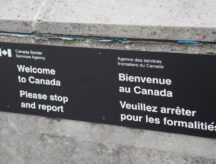Immigration: Canada expands non-Canadians’ rights to information and privacy requests
Earlier this month, Canada announced a major change to its rules for access to information and privacy (ATIP) in the Canada Gazette.
The change is simple, but the impacts are profound. The Canadian government is going to allow anyone to make an ATIP request under the Privacy Act. This new policy will bring Canada into line with global standards on ATIP. It will also vastly expand the rights of non-Canadians.
Discover if You’re Eligible for Canadian Immigration
Laws such as the Privacy Act allow people to make ATIP requests to the federal government. Immigration, Refugees, and Citizenship Canada (IRCC) is a federal agency, so it is subject to the Privacy Act.
Currently, there are limitations on who can make an ATIP request through the Privacy Act. One of the items limits the right of access to two groups:
- Canadian citizens and permanent residents, inside or outside of Canada; and
- any entity (person or business) inside Canada, whether a citizen or not.
This limitation means that non-Canadians who are outside of Canada cannot make requests under the Privacy Act. There is a way to get around this rule. An ineligible person can get someone who is eligible to make a request on their behalf. However, this process can be expensive and time-consuming.
Having the ability to make an ATIP request to IRCC can be very helpful. For example, an ATIP request can allow a person to access their Global Case Management System (GCMS) notes. These are the detailed records of a person’s immigration case. They will explain IRCC staff’s thinking and decision-making. They can help a person understand why IRCC has decided the way it has. This knowledge, in turn, can also help the person challenge the IRCC decision. For example, the person could show the officer ignored or mis-interpreted something.
IRCC is a popular target for ATIP requests. In fact, there are more ATIP requests for IRCC than there are for any other federal government department combined.
Because this change is so important, IRCC expects it will need time to make sure it goes smoothly. For example, IRCC will have to change forms and processes. It will also likely have to deal with a much greater number of requests. For this reason, the government is delaying when the new rule takes effect. Per the Canada Gazette, the Canadian government changed the Extension Order on July 14, 2021. However, the Gazette also noted that the change takes effect on its first anniversary. This means that on July 14, 2022, the new rule will come into force.
The new rule is a major step forward for non-Canadians. There is a delay in effect. This delay, itself, is because the change is so large and important.
Discover if You’re Eligible for Canadian Immigration
© CIC News All Rights Reserved. Visit CanadaVisa.com to discover your Canadian immigration options.
- Do you need Canadian immigration assistance? Contact the Contact Cohen Immigration Law firm by completing our form
- Send us your feedback or your non-legal assistance questions by emailing us at media@canadavisa.com







